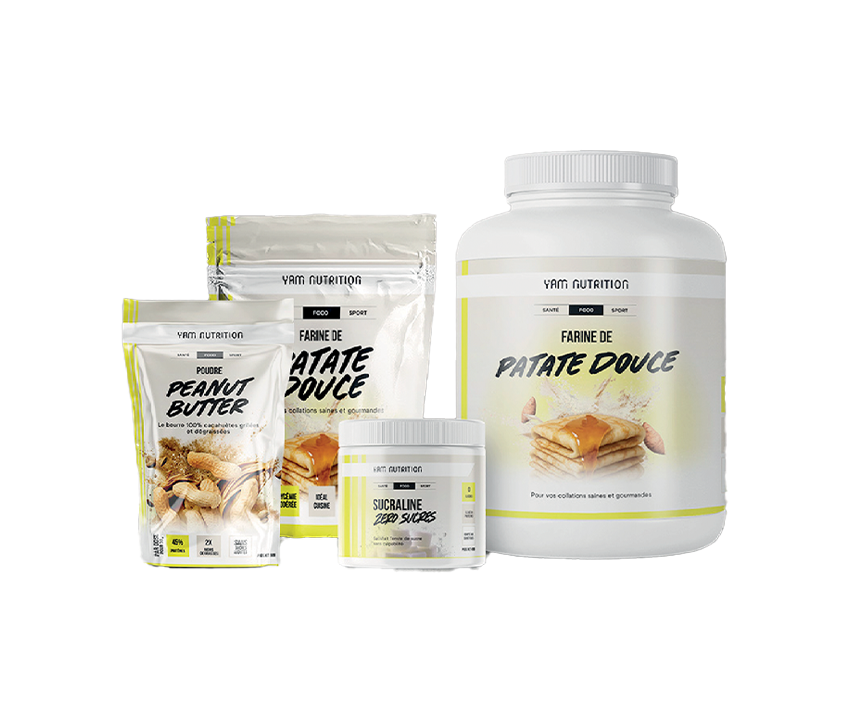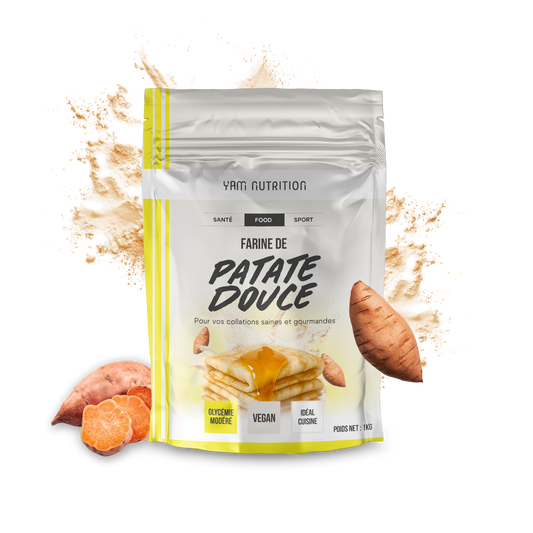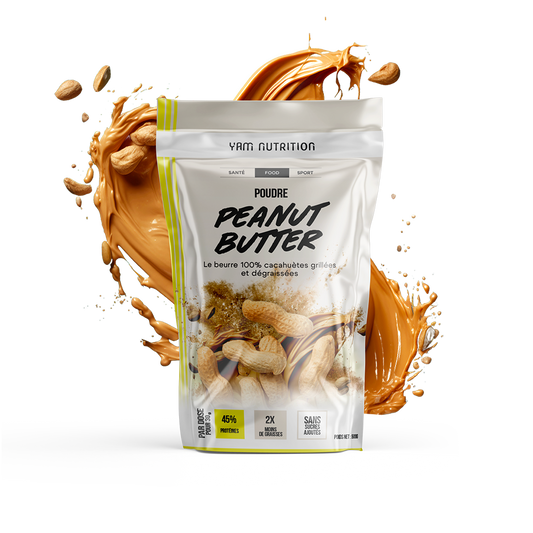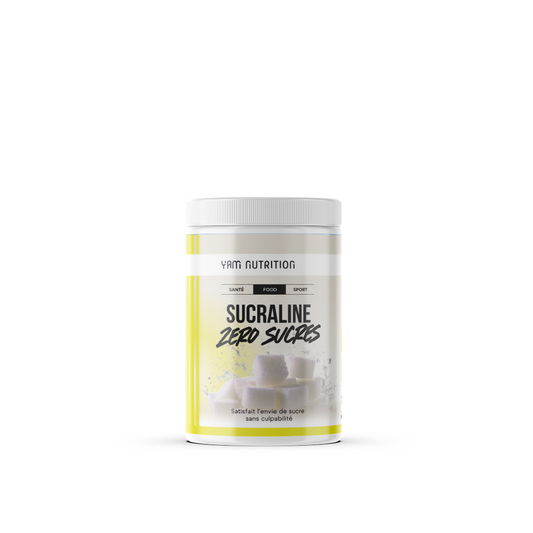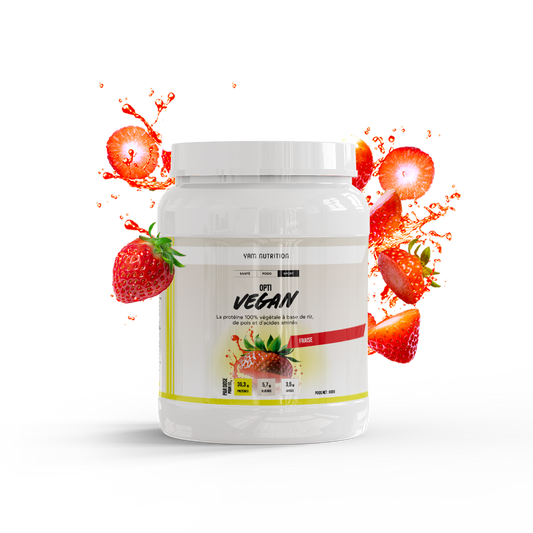Nutritional needs in bodybuilding

Sommaire
- Resistance exercises create micro-tears in muscle fibers
- Carbohydrates provide your nutritional needs for muscle strength and energy
- The higher your muscle glycogen, the higher your exercise intensity will be.
- Dietary fats play an energetic role, but not only that...
- Ensure your nutritional needs by following a few simple rules...
The nutrition of bodybuilders is rich and complex .
However, when it comes to recovering from a strength training workout, you will need to consider that your muscles will have to compensate for the micro-tears created by intense resistance exercises. This is because these sets of short-term muscle contractions will create a slight trauma to your muscle fibers. You will then need to compensate for this with carbohydrates and amino acids from food proteins or supplements.
For your healthy and delicious snacks Peanut butter made with 100% roasted peanuts 100% plant-based protein made from rice, peas and amino acids
Sweet potato flour
Sale price
From 19,90 €
Peanut Butter Powder
Sale price
24,90 €
Opti-Vegan
Sale price
From 37,90 €
Resistance exercises create micro-tears in muscle fibers
As you've probably guessed, your diet is very important when it comes to bodybuilding, as your muscles will try to compensate for the effects of exercise. They will adapt by becoming stronger to overcome the fatigue and stress you've inflicted on them. This is also why we emphasize the importance of protein, as it's what will help you rebuild your muscles after bodybuilding training. However, protein won't be very useful if your daily carbohydrate intake is too low.
Indeed, the carbohydrates found in your food allow your muscles to ensure the best possible athletic performance. For your body, glucose is the simplest way to supply your muscles with ATP ( Adenosine Triphosphate ). And ATP is considered the energy currency of the cell and the muscle itself. A phosphate is released, which generates energy. ADP (Adenosine Diphosphate) is then supported by phosphocreatine, which gives it a phosphate. ADP then returns to its original form of ATP.
Carbohydrates provide your nutritional needs for muscle strength and energy
Sports nutrition is based on the presence of carbohydrates but also micronutrients, vitamins, minerals, trace elements and antioxidants.
Muscle strength is provided by carbohydrates and ultimately, by glucose. Food sources in carbohydrates such as pasta, brown rice, vegetables, fruits, certain grains, and other sources help fuel your muscle glycogen sources. They meet your essential nutritional needs. Your muscles and liver store glucose in the form of glycogen , which is glucose molecules bound together. These reserves of energy substrates (molecules that allow the release of energy) are built up as you consume carbohydrates.
After a intense strength training Whether you're training for strength or endurance , it may take up to 24 to 48 hours for your glycogen stores to fully replenish. Whether you're doing strength training or an endurance sport, eating a carbohydrate-rich diet will help replenish your glycogen stores to handle even the most intense workouts. In fact, dietary carbohydrates are essential for your body, both before and after exercise. You can't do without them if you want to build muscle or improve your endurance.
The higher your muscle glycogen, the higher your exercise intensity will be.
To promote a continuous recharge of muscle and liver glycogen ( liver glycogen ), your meals must include sources of carbohydrates at each meal (breakfast, lunch, dinner) as well as between meals to promote a regular supply of glycogen to muscle mass. At Yam Nutrition, we have chosen sweet potato flour , an easily assimilated, alkalizing and delicious source of carbohydrates. And if carbohydrates are our primary source of energy, beware of simple sugars which can create an insulin spike and ruin your efforts to release energy over time. Taking glucose during training does not pose any particular problems if you are in good health but slow-assimilation carbohydrates are essential in order to recharge your energy reserves over time.
Dietary fats play an energetic role, but not only that...
Dietary fat sources provide a convenient and dense source of energy to use during physical exertion when carbohydrate stores begin to run low. Animal fats ( saturated fats ) should not be systematically rejected, but quality vegetable fats ( monounsaturated, polyunsaturated ) will provide you with many benefits. Defined according to their molecular structure, fatty acids Omega 3 , 6 and 9 are a source of valuable fats for your health and athletic performance. Omega 3 must be provided by your diet ( oily fish, vegetable oils, etc. ) as well as Omega 6. Both are essential, while Omega 9 can be synthesized by your body. However, a dietary intake of Omega 9 monounsaturated fatty acids can be particularly beneficial for your health. In this case, olive oil and hazelnuts are very good sources of these fats. Don't neglect good fats; they are among your most essential nutritional needs.
A calorie-dense source of energy ( usually 9 per gram ), fatty acids also have other functions. On this subject, do not forget that androgenic hormones such as testosterone come from cholesterol. Without it, it will be very difficult for you to maintain normal levels of testosterone in the blood. From there, your performance will suffer. Naturally, fatty acids are part of your nutritional needs to be met every day.
Ensure your nutritional needs by following a few simple rules...
To build muscle, you just need to remember a few simple rules. Make sure you consume at least one source of complex carbohydrates with each meal and on a regular basis to fuel your body. easy to synthesize. Systematically combine a source of protein (meat, fish, egg, etc.) with your meals so as to obtain an average of 30 to 40 grams of protein per meal . Pair your meals with a high-quality vegetable oil (olive, walnut, etc.). You can then consider increasing your calorie intake when it comes to bulking up. Simply implement training and nutrition cycles targeted at muscle growth, muscle gain, or cutting.
Vitamins are coenzyme precursors for all three macronutrients
Also consider that your nutritional needs should take into account the micronutrients : vitamins, minerals, and trace elements. To do this, vary your sources of vegetables and fruits as much as possible. This advice may seem obvious to you, but almost no one does it. Finally, simply consider that you can make your life much easier by carefully selecting your food supplements : Big Yam for carbohydrates with Whey , sweet potato flour to make you some pancakes , Bombi to give you amino acids during training…
Eric MALLET
Spécialiste en Nutrition Sportive
